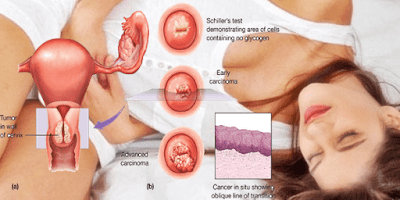Pericardial Mesothelioma
Pericardial mesothelioma is an amazingly uncommon type of cancer that creates in the coating around the heart (the pericardium). Caused by asbestos, pericardial mesothelioma has a greatly poor prognosis, with most cases being analyzed simply after a post-mortem examination.

Most pericardial mesothelioma patients encounter no symptoms when cancer at first builds up, a reality that adds to a late-organize diagnosis. The symptoms additionally take after those of other heart conditions, making cancer hard to precisely analyze. Most symptoms are caused by liquid development around the heart and thickening of the pericardial layers.
Most symptoms are caused by the development of liquid and the thickening of pericardial layers. The nearness of any of these symptoms ought to be trailed by a visit to the specialist with prescribed screenings, for example, an X-beam or CT examine.
The accompanying symptoms may show pericardial mesothelioma:
Trouble breathing, notwithstanding when very still (dyspnea)MurmursCoughShortness of breath when lying flatChest painFatigueFeverNight sweatsHeart palpitations or unpredictable pulse (arrhythmia)
In the event that you are encountering any of these symptoms, particularly heart-related symptoms, plan a meeting with your specialist quickly. Screening tests like X-beams, CT sweeps and echocardiograms can, as a rule, uncover the hidden reason for these medical issues.
The prognosis for all mesothelioma composes is poor; in any case, the prognosis for pericardial mesothelioma is far more terrible than different types of cancer. The middle survival time frame for peritoneal mesothelioma is a half year, and just a single pericardial mesothelioma tolerant is known to have survived longer than five years.
Some portion of the explanation behind the critical prognosis is the area of the tumors so close to the heart. There is a considerable measure of the chance for confusions, and it can be troublesome for patients to defeat the anxiety required for surgery and different treatments for the ailment.
The greatest variables influencing the prognosis of pericardial mesothelioma patients are:
Less research is done on pericardial mesothelioma, which has brought about less refined strategies for diagnosis and treatment. The normal life expectancy for most pericardial patients is short of what one year. Be that as it may, there is confirmation of patients living longer than any time in recent memory.
All types of mesothelioma are dealt with utilizing a blend of three kinds of treatment:
Surgery – Surgical expulsion of the pericardium is frequently required as a feature of the treatment design. Other surgical strategies may offer palliative alleviation.
Chemotherapy – Chemotherapy drugs are regularly controlled to help decimate any cancer cells that may stay after surgery.
Radiation – Radiation is once in a while utilized as a part of a blend with pericardial mesothelioma, given its nearness to the heart.
The evacuation of the pericardium (the covering around the heart) is known as a pericardiectomy. While treating pericardial mesothelioma, all or part of the pericardium might be evacuated amid a pericardiectomy. In a perfect world, this will evacuate the tumor in general, and also any outstanding cancer cells.
In a lot of cases, pericardial mesothelioma patients experience the ill effects of a development of liquid in the pericardium, which can force weight on the heart and cause distress and breakdown. A pericardiocentesis expels this liquid from around the heart, which evacuates the weight and can give alleviation from a portion of the symptoms caused by the sickness.
While a pericardiocentesis can expel liquid from around the heart, after a pericardiectomy, the shot of encountering extra liquid development is high for some patients. By embeddings, an inflatable between the layers of the pericardium, more liquid can be evacuated, along these lines expanding the timeframe between pericardiocentesis strategies.
Given the not very many instances of pericardial mesothelioma, there are not a lot of clinical trials concentrated on this kind of mesothelioma. In any case, a portion of the trials being led has taken a gander at the accompanying treatments.
Immunotherapy: Using the body's own resistant framework to recognize and execute cancer cells has appeared to be a standout amongst the best new types of treatment in treating mesothelioma.
Quality Therapy: Cancer is caused by transformations of the hereditary code, and figuring out how to settle those changes through quality treatment is possibly an approach to cure the malady inside and out.
Photodynamic Therapy: Researchers have shown a capacity to murder cancer cells using a light source joined with a photosensitizing specialist.

Pericardial Mesothelioma Symptoms
Most pericardial mesothelioma patients encounter no symptoms when cancer at first builds up, a reality that adds to a late-organize diagnosis. The symptoms additionally take after those of other heart conditions, making cancer hard to precisely analyze. Most symptoms are caused by liquid development around the heart and thickening of the pericardial layers.
Most symptoms are caused by the development of liquid and the thickening of pericardial layers. The nearness of any of these symptoms ought to be trailed by a visit to the specialist with prescribed screenings, for example, an X-beam or CT examine.
The accompanying symptoms may show pericardial mesothelioma:
Trouble breathing, notwithstanding when very still (dyspnea)MurmursCoughShortness of breath when lying flatChest painFatigueFeverNight sweatsHeart palpitations or unpredictable pulse (arrhythmia)
In the event that you are encountering any of these symptoms, particularly heart-related symptoms, plan a meeting with your specialist quickly. Screening tests like X-beams, CT sweeps and echocardiograms can, as a rule, uncover the hidden reason for these medical issues.
pericardial mesothelioma Prognosis
The prognosis for all mesothelioma composes is poor; in any case, the prognosis for pericardial mesothelioma is far more terrible than different types of cancer. The middle survival time frame for peritoneal mesothelioma is a half year, and just a single pericardial mesothelioma tolerant is known to have survived longer than five years.
Some portion of the explanation behind the critical prognosis is the area of the tumors so close to the heart. There is a considerable measure of the chance for confusions, and it can be troublesome for patients to defeat the anxiety required for surgery and different treatments for the ailment.
The greatest variables influencing the prognosis of pericardial mesothelioma patients are:
- Tumor organizing and estimate
- Cell write (histopathology)
- Sexual orientation of the patient
- Regardless of whether cancer has metastasized (spread)
Pericardial Mesothelioma Life Expectancy
Less research is done on pericardial mesothelioma, which has brought about less refined strategies for diagnosis and treatment. The normal life expectancy for most pericardial patients is short of what one year. Be that as it may, there is confirmation of patients living longer than any time in recent memory.
Pericardial Mesothelioma Treatments are Available
All types of mesothelioma are dealt with utilizing a blend of three kinds of treatment:
Surgery – Surgical expulsion of the pericardium is frequently required as a feature of the treatment design. Other surgical strategies may offer palliative alleviation.
Chemotherapy – Chemotherapy drugs are regularly controlled to help decimate any cancer cells that may stay after surgery.
Radiation – Radiation is once in a while utilized as a part of a blend with pericardial mesothelioma, given its nearness to the heart.
Pericardiectomy
The evacuation of the pericardium (the covering around the heart) is known as a pericardiectomy. While treating pericardial mesothelioma, all or part of the pericardium might be evacuated amid a pericardiectomy. In a perfect world, this will evacuate the tumor in general, and also any outstanding cancer cells.
Pericardiocentesis
In a lot of cases, pericardial mesothelioma patients experience the ill effects of a development of liquid in the pericardium, which can force weight on the heart and cause distress and breakdown. A pericardiocentesis expels this liquid from around the heart, which evacuates the weight and can give alleviation from a portion of the symptoms caused by the sickness.
Percutaneous Balloon Pericardiotomy
While a pericardiocentesis can expel liquid from around the heart, after a pericardiectomy, the shot of encountering extra liquid development is high for some patients. By embeddings, an inflatable between the layers of the pericardium, more liquid can be evacuated, along these lines expanding the timeframe between pericardiocentesis strategies.
Rising and Experimental Treatments
Given the not very many instances of pericardial mesothelioma, there are not a lot of clinical trials concentrated on this kind of mesothelioma. In any case, a portion of the trials being led has taken a gander at the accompanying treatments.
Immunotherapy: Using the body's own resistant framework to recognize and execute cancer cells has appeared to be a standout amongst the best new types of treatment in treating mesothelioma.
Quality Therapy: Cancer is caused by transformations of the hereditary code, and figuring out how to settle those changes through quality treatment is possibly an approach to cure the malady inside and out.
Photodynamic Therapy: Researchers have shown a capacity to murder cancer cells using a light source joined with a photosensitizing specialist.




